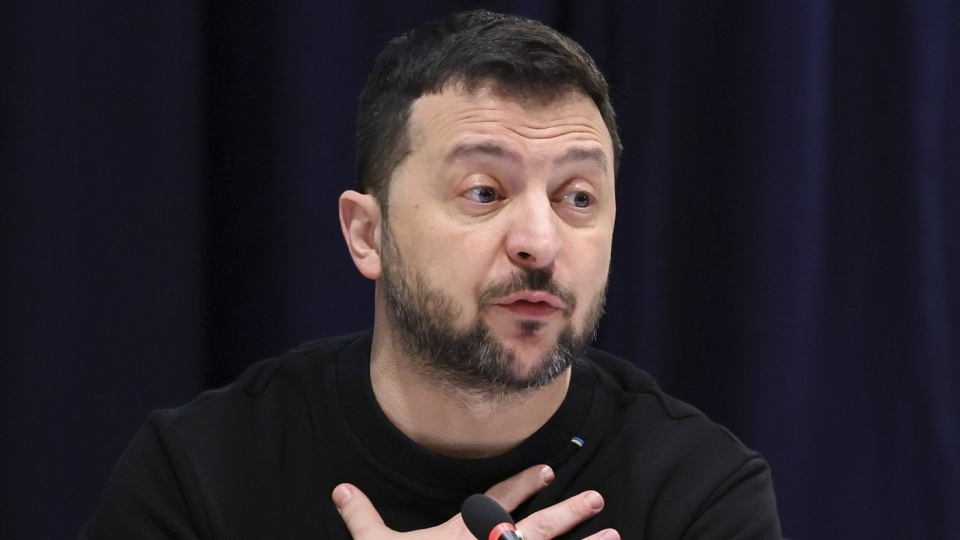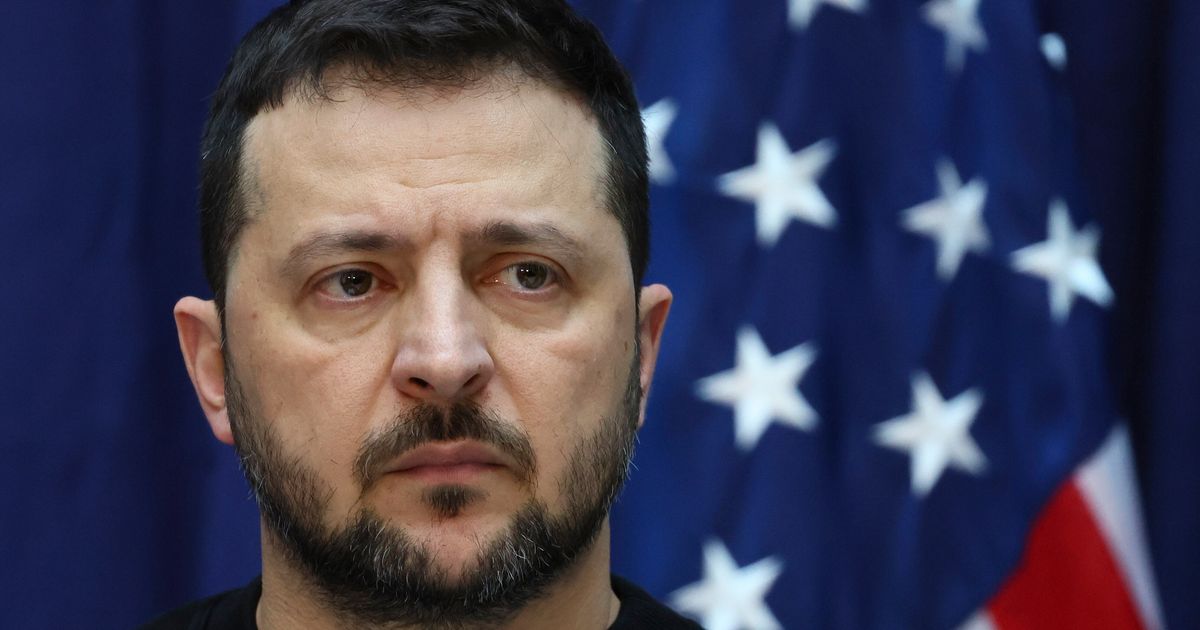Ukrainian President Volodymyr Zelenskyy delivered a stern warning to allies on Saturday, cautioning against an “artificial deficit” of arms for his nation that could provide Russia with room to maneuver. His remarks underscored the critical need for artillery and long-range weapons, particularly in light of recent developments such as the withdrawal of troops from the eastern city of Avdiivka, as announced by his military chief.
Addressing the Munich Security Conference, an annual gathering of security and foreign policy leaders, Zelenskyy highlighted Ukraine’s return to a defensive stance against Russia in the ongoing nearly two-year conflict. The Ukrainian forces face challenges, including low ammunition supplies and a shortage of personnel.
“Ukrainians have demonstrated our ability to compel Russia to retreat,” Zelenskyy asserted. “We have reclaimed our territory, and Putin has suffered defeats on numerous occasions on the battlefield.”

Zelenskyy Warns of Ukraine’s ‘Artificial Deficit’ of Weapons (Credits: CTV News)
“Our capabilities are only limited by our resources,” he emphasized, referring to the situation in Avdiivka. Ukrainian commander Col. Gen. Oleksandr Syrskyi had earlier announced the withdrawal of troops from the city to prevent encirclement and preserve the lives of soldiers who had valiantly defended against a Russian assault for four months.
Expressing frustration, Zelenskyy lamented the persistence of the “artificial deficit” of weapons, particularly artillery and long-range capabilities, which he argued enabled Putin to adapt to the intensity of the conflict. He warned that the erosion of democratic principles over time undermines collective efforts.
The president defended the troop withdrawal from Avdiivka as a necessary decision to safeguard Ukrainian lives. He downplayed Russia’s achievements, noting their sustained attacks on the city since October had resulted in significant losses for the Russian army.
“We are awaiting the weapons we lack,” Zelenskyy stated, citing the critical need for long-range weaponry. “For now, our soldiers and our people are our greatest assets.”
During his visits to Berlin and Paris, Zelenskyy inked long-term bilateral security agreements with Germany and France, following a similar pact with Britain in the previous month.
Ukraine’s European allies are lobbying the U.S. Congress to approve a comprehensive aid package worth $60 billion, primarily aimed at bolstering Ukrainian defenses. However, the package faces opposition from House Republicans.
When asked about the prospect of inviting former U.S. President Donald Trump to Kyiv, Zelenskyy expressed openness, contingent upon Trump’s willingness to visit. He even offered to accompany Trump to the front lines if he accepted.
U.S. Vice President Kamala Harris affirmed America’s commitment to supporting Ukraine, stressing the strategic importance of such assistance to prevent further aggression. NATO Secretary-General Jens Stoltenberg and leaders from other European countries echoed similar sentiments, emphasizing the urgency of providing aid to Ukraine to prevent further casualties and uphold global security.
In conclusion, the Munich Security Conference served as a platform to rally support for Ukraine and underscore the imperative of concerted international action to confront Russian aggression and ensure the defense of Ukraine’s sovereignty and territorial integrity.























